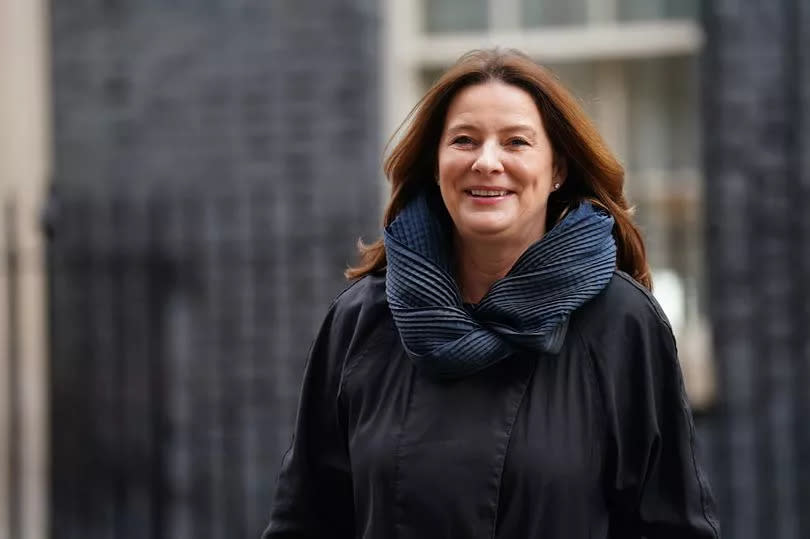Should there be sex education age limits to ensure children are 'not exposed to too much too soon'?

Are children being "exposed to too much too soon" when it comes to sex education or would age limits see them turn to "less reliable sources"?
The Government has unveiled new proposals which would advise schools in England to not introduce lessons on these subjects to children before year five, when pupils are nine years old. According to the draft statutory guidance, subjects such as the "contested topic of gender identity" should be excluded entirely.
Following a leak earlier in the week, the full guidance was officially released on Thursday and will go through a nine-week consultation period that will conclude on July 11.
READ MORE:
This updated guidance on relationships, sex, and health education (RSHE) comes amid concerns over children accessing "inappropriate" material.
However, some educational leaders, charities and teaching unions have voiced their apprehension regarding the set age limits within the curriculum, arguing that this could lead to more children seeking information from online sources instead of trusted educators.
The NSPCC emphasised the importance of empowering children and young people to "recognise when something isn't right and seek help when it's needed". The charity is advocating for now to be the moment to "embed" life-enhancing skills into education rather than "back-track on RSE in schools".
A spokesperson for the NSPCC highlighted that "education is one of our strongest levers for preventing child abuse."
Meanwhile, Paul Whiteman, general secretary at The National Association of Head Teachers, said: “We cannot ignore the fact that some children and young people are already accessing information from different sources outside of school. This may lead to questions that need careful handling from trained professionals.
“It is hard to see how rigid limits on what can be discussed and when would be in the best interests of young people – and this may even risk them seeking information from less reliable sources.”
The Department for Education (DfE) is advising that sex education should not be introduced before year five, and when it is, it should align with what students are learning about conception and birth in their national curriculum science classes.
Education Secretary Gillian Keegan, in her introduction to the draft guidance document, emphasised that children need "the right information at the right time, so that they know about the risks and how to avoid them, but also making sure that they are not exposed to too much too soon, taking away the innocence of childhood".
In an attempt to strike a "very difficult balance", she noted that the updated guidance includes "clear age limits for the teaching of the most sensitive content and specifies that the contested topic of gender identity should not be taught".
The guidance stipulates that topics such as harmful sexual behaviour in relationships, the concepts and laws relating to sexual harassment, 'revenge porn', sexual exploitation and abuse, grooming, stalking and forced marriage should not be taught before year seven (age 11).
While the dangers of inappropriate online content like pornography can be discussed "in an age-appropriate way" from year seven, the specifics of sexual acts should not be discussed before year nine (age 13), the guidance adds.
The guidance on laws relating to sexual violence, including rape and sexual assault, emphasises the importance of pupils understanding key principles around such offences, including consent. However, it stipulates that "schools should not teach about this in any sexually explicit way before year nine".
The guidelines suggest there can be some flexibility regarding age limits for teaching certain topics if necessary "to respond promptly to issues which pose an imminent safeguarding risk to their pupils". However, parents must be informed in advance if a topic is to be taught earlier than expected.
School staff are highlighted as having a crucial role in modelling positive behaviours and avoiding language that might perpetuate harmful stereotypes. The guidance also references pupils' exposure to "sexist and misogynistic influencers, which may normalise sexual harassment and abuse".

The document advises teachers to be aware of risk factors such as bullying, peer pressure, or low self-esteem, which can make some boys more susceptible to harmful online content. It warns against making generalisations and encourages pupils to identify positive male role models "and understand that most boys and young men are respectful to girls and young women and each other".
Speaking in the House of Commons shortly after the guidance was published, Ms Keegan stated: "Materials now will have to be shown to parents, no ifs, no buts, we've made that crystal clear."
The guidance advises that schools should, "at minimum", show parents a representative sample of the teaching resources they plan to use and be responsive to requests from parents to view material not already shared.
Following concerns about children being exposed to "inappropriate" content, the Prime Minister initiated a review of statutory RSHE guidance for schools in March last year.
An independent panel was set up in 2023 to provide advice on the updated guidance as part of the Department for Education-led review.
For younger pupils, the focus on wellbeing includes learning to recognise and express feelings, understanding the importance of seeking help when feeling isolated or lonely, and discussing the effects of bullying on mental health.
However, the guidance specifies that direct references to suicide should not occur before year 8 (age 12).
Education Secretary Gillian Keegan commented: "The topic of suicide itself needs to be handled sensitively and skilfully, and not before pupils are ready to understand it."
Labour's shadow education minister Catherine McKinnell expressed "deep concern about the lack of consultation with school leaders in developing the guidance so far" and highlighted the proposed age restrictions amidst increasing sexual offences against children.
Echoing the NSPCC's stance, McKinnell emphasised the importance of children feeling "empowered to recognise when something isn't right".

 Yahoo News
Yahoo News 
